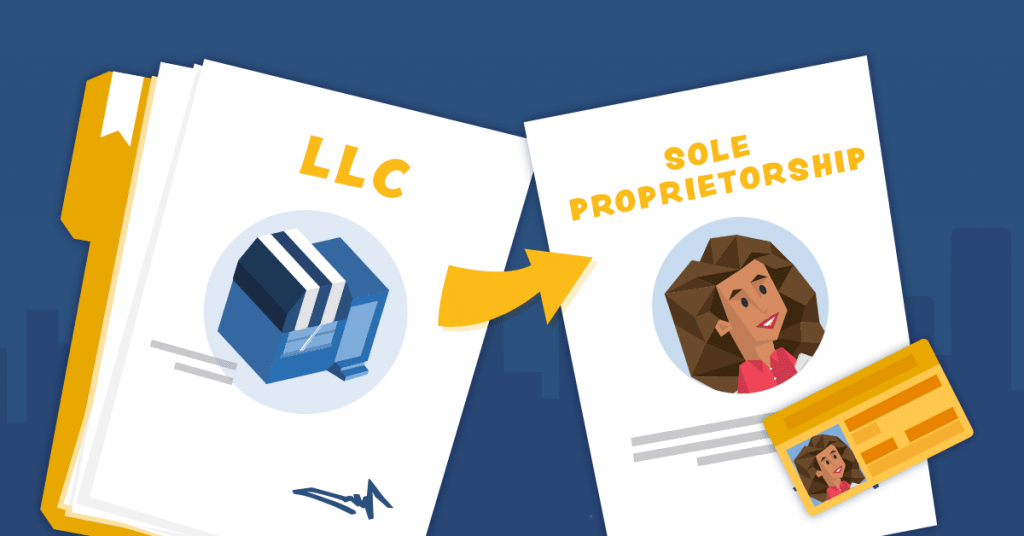How to Change an LLC into a Sole Proprietorship

At Northwest, we love to talk about the benefits of having an LLC. However, there are some cases when a sole proprietorship is the better option. Here’s what you should know.
What is the difference between a sole proprietorship and an LLC?
A sole proprietorship is an unincorporated business run by a single person. Basically, if you start doing business on your own, and you don’t create an LLC or a corporation, your business is, by default, a sole proprietorship. (Note: if your business is run by more than one person, it becomes a partnership rather than a sole proprietorship.) In a sole proprietorship, there is no legal distinction between the owner and the business. You report the business profits as self-employment income on your personal tax returns, and if your business is sued, you as the business owner are liable for all damages.
On the other hand, an LLC is a business entity that is taxed the same way as a sole proprietorship or partnership by default (called “pass-through taxation”) but also enjoys limited liability protection. An LLC is considered a separate legal entity from its owners—so if the business is sued, the owners are not held personally liable for damages.
Can I change my LLC into a sole proprietorship?
Yes. It is a fairly simple process to convert an LLC back into a sole proprietorship. Basically, you will need to dissolve your LLC before you can operate as a sole proprietorship. Here are the steps you should take:
- Consult your operating agreement. Your operating agreement should include your LLC’s plan for dissolution.
- Get approval from all members. If you have a single-member LLC, you can skip this step. Otherwise, you will need to hold a meeting of all your members and vote on dissolving the LLC. With majority approval, you can draft a member’s agreement to dissolve the LLC, which should be signed by all members.
- File your Articles of Dissolution. This process will look different in each state, but most states require you to file Articles of Dissolution (or a similar document) when you dissolve your LLC. You will file this document with the same state agency where you filed your LLC Articles of Organization. You may also have to pay a filing fee.
- Wind up your affairs. “Winding up” includes notifying creditors that your LLC is dissolving, filing tax forms and reports, and transferring the LLC’s assets to the members. You should consult your state LLC statutes to see what is required for winding up an LLC in your state.
- Transfer your business licenses. If your state requires you to have a business license, you’ll need to transfer your current business license or apply for a new one.
Once you have formally dissolved your LLC, you are ready to start doing business as a sole proprietor. Generally, there are no special forms you have to fill out to become a sole proprietorship. You can simply begin selling your service or product.
What are benefits of a sole proprietorship vs. an LLC?
In general terms, the benefits of a converting an LLC to a sole proprietorship are:
- Simplicity. You typically don’t need to file annual reports or pay state fees.
- Sometimes a better financial choice for businesses with low cash flow.
- Sometimes the only option if the LLC is forcibly dissolved or goes bankrupt.
On the other hand, the benefits of an LLC include:
- Asset protection.
- Tax benefits in certain states.
- Increased credibility with business associates and customers.
Ultimately, every business has unique needs, and we recommend consulting a CPA or business attorney to help decide on the best structure for your business.
On the flip side, read about Turning Your Sole Proprietorship into an LLC.



